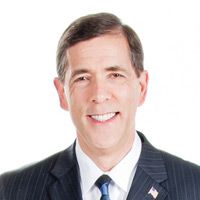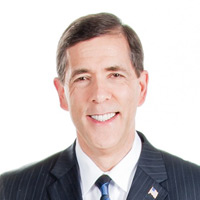7 Steps to Help Find the Right Financial Professional
It’s up to investors to do a little detective work when considering who should advise them.


Profit and prosper with the best of Kiplinger's advice on investing, taxes, retirement, personal finance and much more. Delivered daily. Enter your email in the box and click Sign Me Up.
You are now subscribed
Your newsletter sign-up was successful
Want to add more newsletters?

Delivered daily
Kiplinger Today
Profit and prosper with the best of Kiplinger's advice on investing, taxes, retirement, personal finance and much more delivered daily. Smart money moves start here.

Sent five days a week
Kiplinger A Step Ahead
Get practical help to make better financial decisions in your everyday life, from spending to savings on top deals.

Delivered daily
Kiplinger Closing Bell
Get today's biggest financial and investing headlines delivered to your inbox every day the U.S. stock market is open.

Sent twice a week
Kiplinger Adviser Intel
Financial pros across the country share best practices and fresh tactics to preserve and grow your wealth.

Delivered weekly
Kiplinger Tax Tips
Trim your federal and state tax bills with practical tax-planning and tax-cutting strategies.

Sent twice a week
Kiplinger Retirement Tips
Your twice-a-week guide to planning and enjoying a financially secure and richly rewarding retirement

Sent bimonthly.
Kiplinger Adviser Angle
Insights for advisers, wealth managers and other financial professionals.

Sent twice a week
Kiplinger Investing Weekly
Your twice-a-week roundup of promising stocks, funds, companies and industries you should consider, ones you should avoid, and why.

Sent weekly for six weeks
Kiplinger Invest for Retirement
Your step-by-step six-part series on how to invest for retirement, from devising a successful strategy to exactly which investments to choose.
It isn’t easy to find a financial professional these days.
Oh, there are plenty of us out there — but it’s becoming increasingly difficult to find an individual or firm you know you can trust.
First, there’s the confusing collection of certifications I call “designation soup.” Then, there’s the current contentious debate over fiduciary vs. suitability standards. And to top it off, we have the “testimonial rule” in the Investment Advisers Act, which says Registered Investment Advisers can’t directly or indirectly distribute an advertisement that includes a client testimonial or a client’s endorsement. So, we can’t give out a list of references or publish an online review.
From just $107.88 $24.99 for Kiplinger Personal Finance
Become a smarter, better informed investor. Subscribe from just $107.88 $24.99, plus get up to 4 Special Issues

Sign up for Kiplinger’s Free Newsletters
Profit and prosper with the best of expert advice on investing, taxes, retirement, personal finance and more - straight to your e-mail.
Profit and prosper with the best of expert advice - straight to your e-mail.
This all means it’s up to individuals to do some research if they want to find an experienced, knowledgeable and honest financial professional to handle their retirement planning.
Here are seven steps that can help put you on the right track:
1. Look for a planning firm that can provide comprehensive services.
Some firms specialize in one product or service. Look for a firm that can provide you with a holistic plan that offers a variety of services and financial vehicles from which to choose. Firms that offer comprehensive services, or who partner with qualified professionals to provide the services they may not be able to offer, can incorporate more aspects of your financial life into your overall strategy. Examples would be an investment firm with the appropriate professionals who can assist in insurance, estate or tax planning, allowing you to do more planning under one roof.
2. Make sure your philosophies align.
There are different types of financial professionals with many different specialties. Most focus on wealth accumulation — investing and growing your assets while you’re still working. When you’re near or in retirement, though, you’ll want to find an individual or firm that specializes in preservation and distribution. They should be experienced in protecting your assets and producing an income that will last your lifetime. They should understand tax-efficient strategies and how to hedge against inflation. And they should do legacy and estate planning, or work with someone, like an attorney, who does.
Some financial professionals also have subspecialties; they focus on the unique needs of widows, divorcees, small-business owners and others. To be sure that the person you’re working with understands your needs, you’ll have to ask the right questions. I suggest meeting with a few financial professionals or firms so you can find the right fit.
3. Work with a fiduciary.
The Department of Labor’s fiduciary rule, which requires financial professionals to look out for the best interests of their clients when working with qualified funds (money set aside for retirement on a pre-tax basis), began implementation on June 9, 2017. But consumers didn’t have to wait for that to be protected. They just had to limit their search to Registered Investment Advisers or CERTIFIED FINANCIAL PLANNERS (CFP), who have always been required by law uphold the fiduciary standard of care.
Why is this important? There are financial professionals who work under the suitability standard for non-retirement assets. They use a handful of factors — such as the investor’s age, risk tolerance and net worth — to make recommendations they think are suitable, but they aren’t required to work in the client’s best interest when making recommendations. That’s not to say that those financial professionals who are held to a suitability standard don’t look out for the interest of their clients, but those held to a fiduciary standard are legally obligated to do so.
If you don’t have a lot of assets, your hiring options may be limited; investment advisers held to a fiduciary standard of care sometimes have minimums and don’t take smaller accounts. But if you can get this conflict-free advice, you should.
4. Choose an independent adviser.
Some financial professionals contract with and operate under the umbrella of a larger firm that creates and sells financial products and services. Others are actual employees of those firms. Independent financial advisers, on the other hand, are not affiliated with any company, bank or other corporate entity, so they aren’t limited in the products they can offer.
No one provider has a lock on the best products in every category, so you want someone who represents a multitude of companies, who can put together the best financial plan possible and fund it with all the latest and greatest vehicles that are out there.
5. Education should be ongoing.
There are a lot of different designations and certifications for financial professionals. I really believe the CERTIFIED FINANCIAL PLANNER (CFP) designation to be the core designation in the business today. It has its own code of ethics, and the college-level coursework must be completed before you sit for the certification exam. In addition, CFP professionals must complete 30 credit hours of continuing education every two years, including two hours of ethics training.
You should know what it takes for a person to achieve the various letters that appear on his business card. Don’t be afraid to ask, or check it out on Google.
6. Look at experience and depth on the bench.
This is a tricky one. You want a financial professional who’s been around for a while, but maybe not too long. If you like a financial professional but they are close to retirement age, make sure they have a succession plan and that you are acquainted with others at the firm.
7. Do a little detective work.
There are a couple of quick checks you can do to be sure your financial professional is who and what he says he is. With BrokerCheck you can check to see if a financial professional or firm is registered to sell securities, offer investment advice or both. And you can get some information on employment history, licensing and regulatory actions, arbitrations and complaints.
You also can do a database search through the SEC. And, if it’s appropriate, check your state’s office of insurance regulation.
For backup, you might try the Better Business Bureau or just do a Google search. You may find the financial professional declared bankruptcy recently, or that they haven’t paid their taxes — and then you can decide if that’s really the person you want handling your life savings.
Once you’ve taken these steps, you can feel pretty good about making the correct choice. Then it’s all about personality, communication and your general comfort level when you meet.
The right financial professional should be able to help you get to and through retirement with fewer concerns and more assets. So take the time to find someone who rises to your expectations and meets all your needs.
Kim Franke-Folsted contributed to this article.
Profit and prosper with the best of Kiplinger's advice on investing, taxes, retirement, personal finance and much more. Delivered daily. Enter your email in the box and click Sign Me Up.

Richard W. Paul is the president of Richard W. Paul & Associates, LLC, and the author of "The Baby Boomers' Retirement Survival Guide: How to Navigate Through the Turbulent Times Ahead." He holds life and health insurance licenses in Michigan and Florida and is a Certified Financial Planner, Registered Financial Consultant, Investment Adviser Representative and insurance professional.
-
 Dow Leads in Mixed Session on Amgen Earnings: Stock Market Today
Dow Leads in Mixed Session on Amgen Earnings: Stock Market TodayThe rest of Wall Street struggled as Advanced Micro Devices earnings caused a chip-stock sell-off.
-
 How to Watch the 2026 Winter Olympics Without Overpaying
How to Watch the 2026 Winter Olympics Without OverpayingHere’s how to stream the 2026 Winter Olympics live, including low-cost viewing options, Peacock access and ways to catch your favorite athletes and events from anywhere.
-
 Here’s How to Stream the Super Bowl for Less
Here’s How to Stream the Super Bowl for LessWe'll show you the least expensive ways to stream football's biggest event.
-
 How to Add a Pet Trust to Your Estate Plan: Don't Leave Your Best Friend to Chance
How to Add a Pet Trust to Your Estate Plan: Don't Leave Your Best Friend to ChanceAdding a pet trust to your estate plan can ensure your pets are properly looked after when you're no longer able to care for them. This is how to go about it.
-
 Want to Avoid Leaving Chaos in Your Wake? Don't Leave Behind an Outdated Estate Plan
Want to Avoid Leaving Chaos in Your Wake? Don't Leave Behind an Outdated Estate PlanAn outdated or incomplete estate plan could cause confusion for those handling your affairs at a difficult time. This guide highlights what to update and when.
-
 I'm a Financial Adviser: This Is Why I Became an Advocate for Fee-Only Financial Advice
I'm a Financial Adviser: This Is Why I Became an Advocate for Fee-Only Financial AdviceCan financial advisers who earn commissions on product sales give clients the best advice? For one professional, changing track was the clear choice.
-
 I Met With 100-Plus Advisers to Develop This Road Map for Adopting AI
I Met With 100-Plus Advisers to Develop This Road Map for Adopting AIFor financial advisers eager to embrace AI but unsure where to start, this road map will help you integrate the right tools and safeguards into your work.
-
 The Referral Revolution: How to Grow Your Business With Trust
The Referral Revolution: How to Grow Your Business With TrustYou can attract ideal clients by focusing on value and leveraging your current relationships to create a referral-based practice.
-
 This Is How You Can Land a Job You'll Love
This Is How You Can Land a Job You'll Love"Work How You Are Wired" leads job seekers on a journey of self-discovery that could help them snag the job of their dreams.
-
 65 or Older? Cut Your Tax Bill Before the Clock Runs Out
65 or Older? Cut Your Tax Bill Before the Clock Runs OutThanks to the OBBBA, you may be able to trim your tax bill by as much as $14,000. But you'll need to act soon, as not all of the provisions are permanent.
-
 The Key to a Successful Transition When Selling Your Business: Start the Process Sooner Than You Think You Need To
The Key to a Successful Transition When Selling Your Business: Start the Process Sooner Than You Think You Need ToWay before selling your business, you can align tax strategy, estate planning, family priorities and investment decisions to create flexibility.